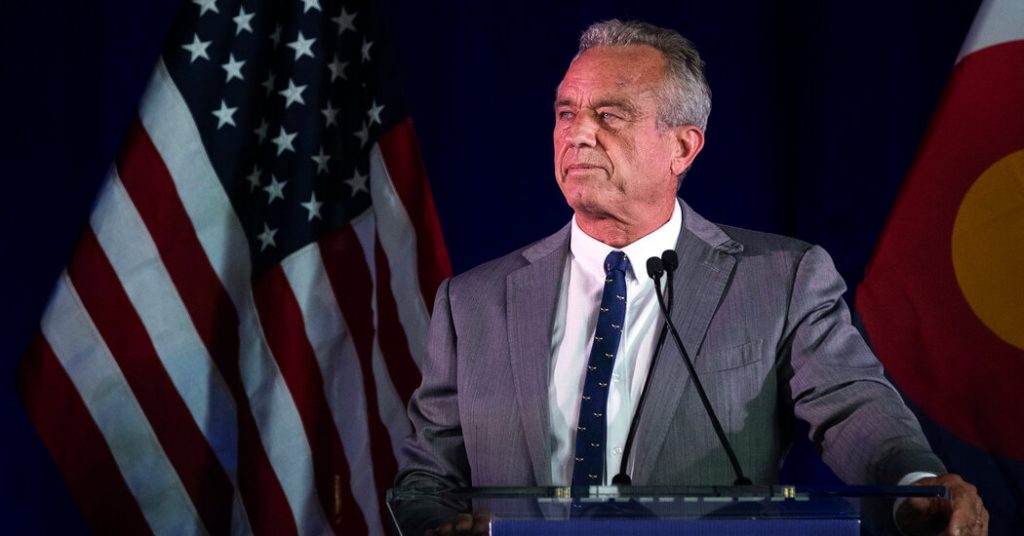A group aligned with President Biden has challenged Robert F. Kennedy Jr.’s New York ballot petition, claiming he lied about his New York residency. The group, Clear Choice, alleges that Kennedy moved to the West Coast long ago and has virtually no connection to the New York address listed on his petitions. These objections to Kennedy’s campaign have been filed with the state Board of Elections in New York, along with several others that question his signature-gathering efforts. While the Board of Elections spokesperson stated that residency determinations are outside their scope, challenges from groups like Clear Choice are likely to delay Kennedy’s ballot access in New York and other states where he is filing to run.
The campaign for Robert F. Kennedy Jr. submitted over 135,000 signatures to New York election officials, which is three times the required amount to get on the ballot. However, Clear Choice and others have lodged objections to his petition, citing evidence such as property records, legal filings, news articles, and public statements that establish Kennedy’s current home as California. Clear Choice contends that because Kennedy claimed New York residency on his petitions, the wrong address is listed for him as a candidate, and therefore all petitions should be invalidated. This has led to a legal battle over Kennedy’s eligibility to run for president in the United States.
Robert F. Kennedy Jr. has deep roots in New York, having been a resident of the state since 1968 and working as an assistant district attorney in Manhattan in 1982. He has also spent decades working as an environmental lawyer for Riverkeeper, a nonprofit dedicated to protecting the Hudson River. Despite his connections to New York, Clear Choice and other groups are challenging his residency claims, based on evidence that he has primarily lived in California in recent years. Kennedy’s campaign maintains that his official address in Katonah, NY, is legitimate, as he receives mail, has his driver’s license registered there, and pays rent to the owner. However, the evidence presented by objectors suggests otherwise.
Kennedy’s ownership of property in Westchester County, as well as his voting registration at multiple addresses over the years, have raised questions about his true residency status. While his campaign insists that Katonah is his official address, voting records show that he has been registered at various locations owned by friends and family members. Kennedy did switch his listed address to a friend’s residence in Westchester County in 2023, but this address is also being challenged by groups like Clear Choice. The complexity of Kennedy’s residency status has led to uncertainty surrounding his eligibility to appear on the ballot in multiple states.
Despite owning property in California and living there temporarily with his third wife, actress Cheryl Hines, Kennedy’s campaign maintains that he has always considered New York his permanent home. The campaign states that Kennedy intends to move back to New York after his wife retires from acting. However, the legal challenges to his New York residency claim are likely to complicate his ballot access efforts, particularly in states like California where his running mate also resides. The dispute over Kennedy’s residency status highlights the intricacies of election law and the importance of accurately representing one’s state of residence when seeking public office.
In conclusion, the challenges to Robert F. Kennedy Jr.’s New York residency claim have created uncertainty around his eligibility to run for president in the United States. Groups like Clear Choice have raised objections based on evidence suggesting that Kennedy primarily resides in California, despite claiming New York as his home. Kennedy’s deep ties to New York and his longstanding connections to the state are being called into question in light of these challenges. As the legal battle over his residency status continues, the outcome will impact his ability to appear on the ballot in multiple states, including crucial battlegrounds like California. The complexities of election law and residency requirements underscore the importance of accurately representing one’s place of residence when seeking public office.


